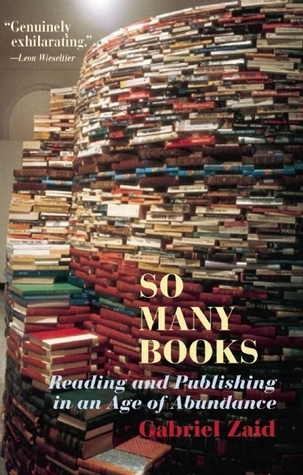What do you think?
Rate this book


144 pages, Paperback
First published January 1, 1996
As the university-educated population grows, it is not so much the number of those who read that increases, but the number of those who want to be read…. If all those who wanted to be read would actually read, there would be an unprecedented boom, because never have so many millions of people dreamed of being published. But the hardly pleasant narcissism of “read me and I’ll read you” has degenerated into a narcissism that isn’t even reciprocal: Don’t ask me to pay attention to you; pay attention to me.